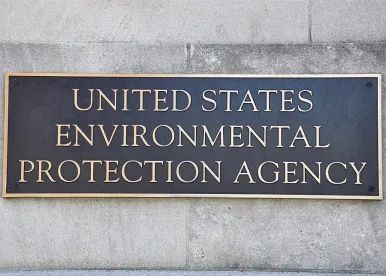It is well established that insurance coverage for potentially responsible party (PRP) letters is available under the law of most jurisdictions. Many, if not most, jurisdictions now recognize that a demand from the Environmental Protection Agency (EPA) or a state agency to investigate and remediate contamination is the functional equivalent of a suit, which triggers a liability insurer’s duty to defend the recipient of the demand.
The logic is that a communication from a governmental agency that includes a coercive remediation demand under an environmental statute, with the threat of fines or penalties for non-compliance, sufficiently bears the hallmarks of a traditional court lawsuit that there is no functional distinction between the two. Moreover, public policy dictates that a policyholder need not refuse to comply with such a demand, forcing the government to initiate court proceedings against it, merely to obtain a defense against the demand from its liability insurer(s).
However, formal PRP letters alleging that a policyholder is liable for contamination and demanding that the policyholder investigate and remediate are not the only types of communications from state or federal regulators that can place heavy burdens on the recipient of such communications.
The EPA and state agencies frequently issue formal demands that an owner or operator of a polluted site provide information in its possession regarding the operations at the site, including the use, storage, discharge, or disposal of compounds or chemicals used in those operations. The letters often state that contamination has been detected in soil and groundwater at or near the site; that the site, or past operations at the site, may be a source of the contamination; and that the owner or operator may possess information relevant to determining the source, cause and extent of the problem.
As with the cleanup demands, these information demands often include a citation to an environmental statute or regulation and a reference to the potential assessment of penalties for non-compliance. Can these types of information demands, short of a formal PRP letter, trigger insurance coverage? A decision by the U.S. Court of Appeals for the Ninth Circuit says “yes.”
A case decided in May 2016 by the U.S. Court of Appeals for the Ninth Circuit extended the duty to defend beyond governmental cleanup demands, to include governmental information demands. The court’s decision held that governmental information demands that relate to alleged contamination are, like cleanup demands, the functional equivalent of “suits” triggering a liability insurer’s duty to defend.
In Ash Grove Cement Co. v. Liberty Mutual Ins. Co., No. 13-35900, 2016 U.S. App. LEXIS 8663 (9th Cir. May 11, 2016), the policyholder, who operated a cement plant at a contaminated site, received an information demand regarding the contamination from the EPA pursuant to 42 U.S.C. §9604(e) (the Comprehensive Environmental Response, Compensation, and Liability Act of 1980, or CERCLA). The policyholder notified its liability carriers of its receipt of this demand and requested a defense, but the carriers denied an obligation to defend. Id. at *4-5.
The court disagreed, observing that the EPA’s letter was a “‘coercive information demand[]’ that qualifies as ‘an attempt to gain an end through legal process[.]’” Id. at *5-6 (quoting Anderson Bros., Inc. v. St. Paul Fire & Marine Ins. Co., 729 F.3d 923 (9th Cir. 2013)). The court likewise rejected the insurers’ contentions that the EPA’s letter was merely a “claim;” the letter did not require the policyholder to take action with respect to contamination; and it did not allege covered “property damage.” Id. at *6-7. In short, the court held that the policyholder was entitled to a defense against the government’s information demands relating to the contamination, as well as any subsequent cleanup demand the policyholder might receive.
Takeaway for policyholders
The takeaway for policyholders potentially facing compulsory inquiries from governmental agencies is: never simply assume that a governmental demand is not covered by your past or present liability insurance. Depending on the language and context of the demand, and the applicable jurisdiction’s insurance coverage law, a policyholder may be entitled to a defense against a coercive informational demand, as well as any cleanup demand the policyholder may ultimately receive.




 />i
/>i
